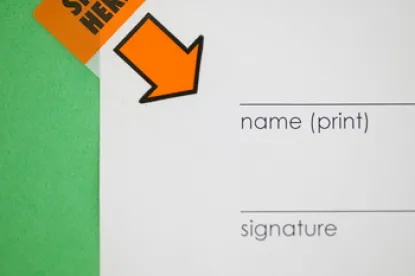A written federal Contractor Code of Business Ethics and Conduct and company business ethics awareness and compliance program makes more business sense now than it ever has.
It is no secret that workplace non-consensual sexual misconduct was a hot topic this year. In many circumstances, the alleged misconduct happened in the workplace calling into question the employees’ workplace culture, policies, and compliance programs that allowed such behavior to go unchecked and unreported. The companies that ignore the misconduct may never recover. However, negative repercussions and scrutiny are preventable. What these companies likely overlooked was the value of an internal ethics policy and compliance program that could have promoted a culture of ethical conduct and individual responsibility among all employees.
Why is this relevant to you as a federal contractor? In most circumstances, a federal contractor is required to have a written Contractor Code of Business Ethics and Conduct, establish a company business ethics awareness and compliance program and display a hotline poster per the terms of its government contract. See Federal Acquisition Regulation (“FAR”) §§ 52.203-13 and 52.203-14. Further, a contractor risks debarment for not creating and maintaining such a business ethics program. But most importantly, it just makes good business sense and it is the right thing to do.
It makes good business sense because an established ethics and compliance program can make a federal contractor more competitive. The Federal government will only award a contract to a “responsible” contractor. FAR § 9.103(a). A responsible federal contractor is one that can prove that it has a record of integrity and business ethics,adequate financial resources, a satisfactory record of performance, and the necessary organization, experience, accounting and operational controls, and technical skills to perform the contract. FAR § 9.104-1. Given the emphasis on a record of integrity and business ethics, there is no better way to standout during the procurement process than to already have an established ethics and compliance program in place instead of waiting to be told to do one by the Federal government.
It is the right thing to do because an established ethics and compliance program fosters an ethical and trained culture before a contract is even awarded. This means your employees are ethically indoctrinated and trained before contract performance begins and less inclined to treat a post-award generated ethics and compliance programs as a check-in-the-box.
To get a gauge of how effective your ethics and compliance program is, ask yourself the following questions:
-
Do all of our employees have a copy of our Business Code of Ethics and Conduct policy?
-
Do we have an established business ethics awareness and compliance program?
-
Are we confident that our company’s training program empowers our employees to do the following:
-
Our employees know how to identify reportable misconduct?
-
Specifically,
-
A bribe;
-
A conflict of interest;
-
A gratuity;
-
A false claim; and/or
-
A discriminatory or hostile work environment.
-
-
-
Our employees know where to report an allegation of misconduct?
-
Our employees can anonymously report misconduct without the fear of retribution?
-
-
Are we confident that our internal monitoring and audit program can identify misconduct?
-
Are we confident that an allegation of misconduct is investigated fully and efficiently?
-
Are we confident that our company knows how to work with outside auditors and investigators?
-
Do we have fraud hotline posters published in the required work areas and posted electronically to a website accessible to our employees?
If you answered “no” to any of these questions, it is time to revisit, or create, your written Business Code of Ethics and Conduct and business ethics awareness and compliance program. Remember, preventative costs are usually always less expensive than the defensive costs. For example, a Federal contractor can seek proactive, preventative legal advice in establishing a program for a flat fee whereas defensive legal advice such as defending a government investigation and litigation can be unpredictable and costly (both monetarily and reputational).





 />i
/>i

